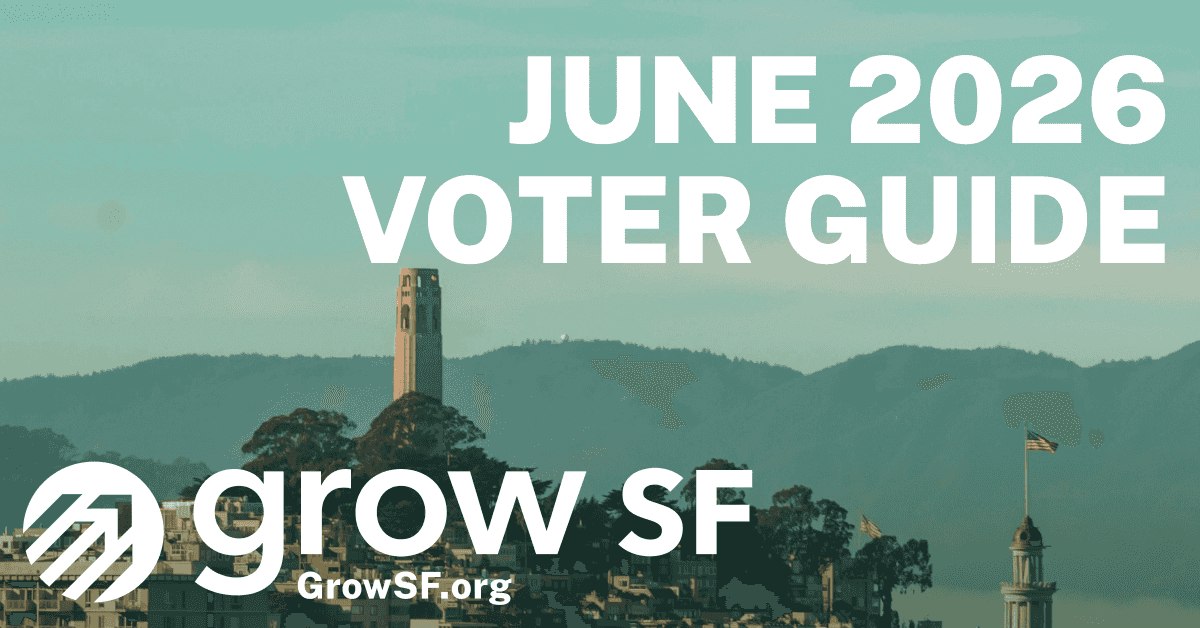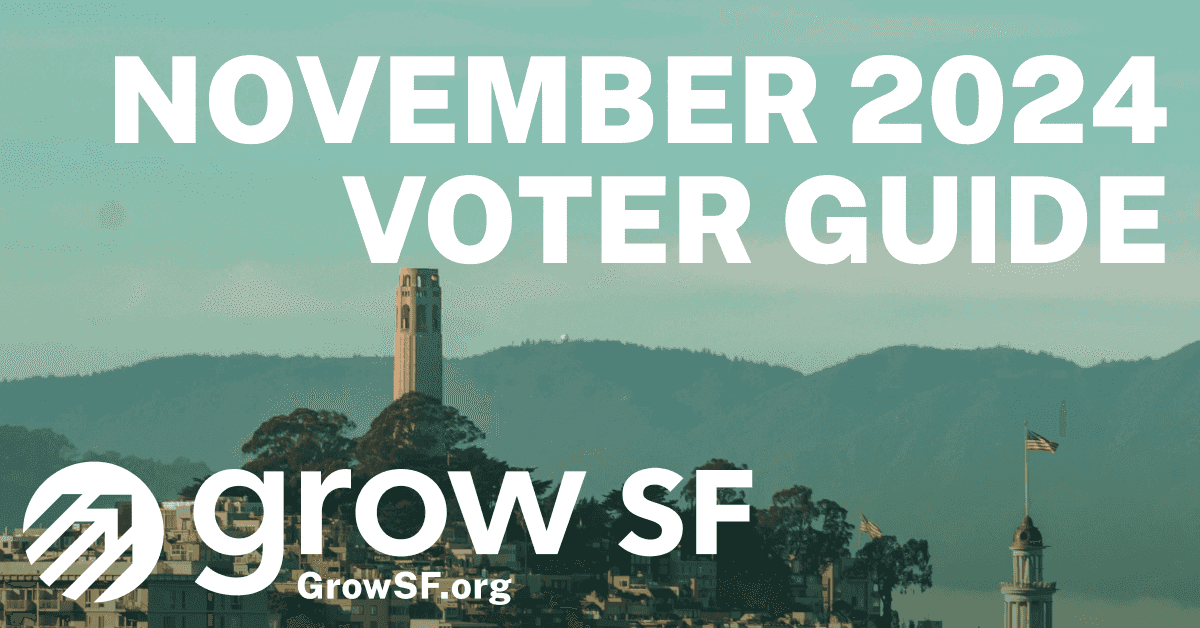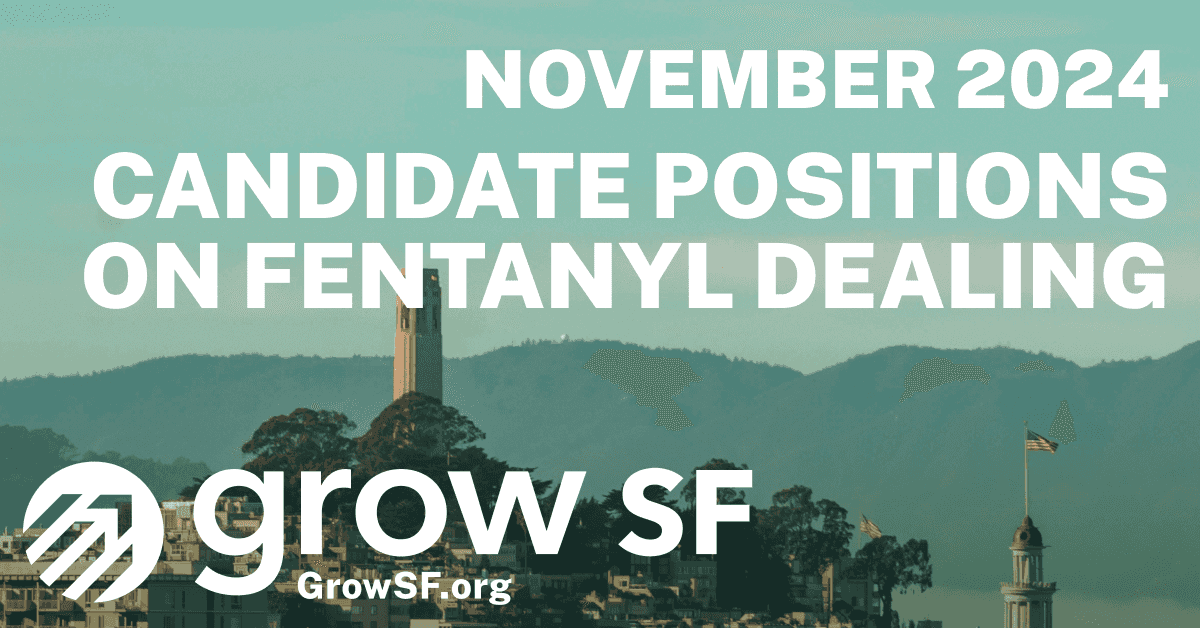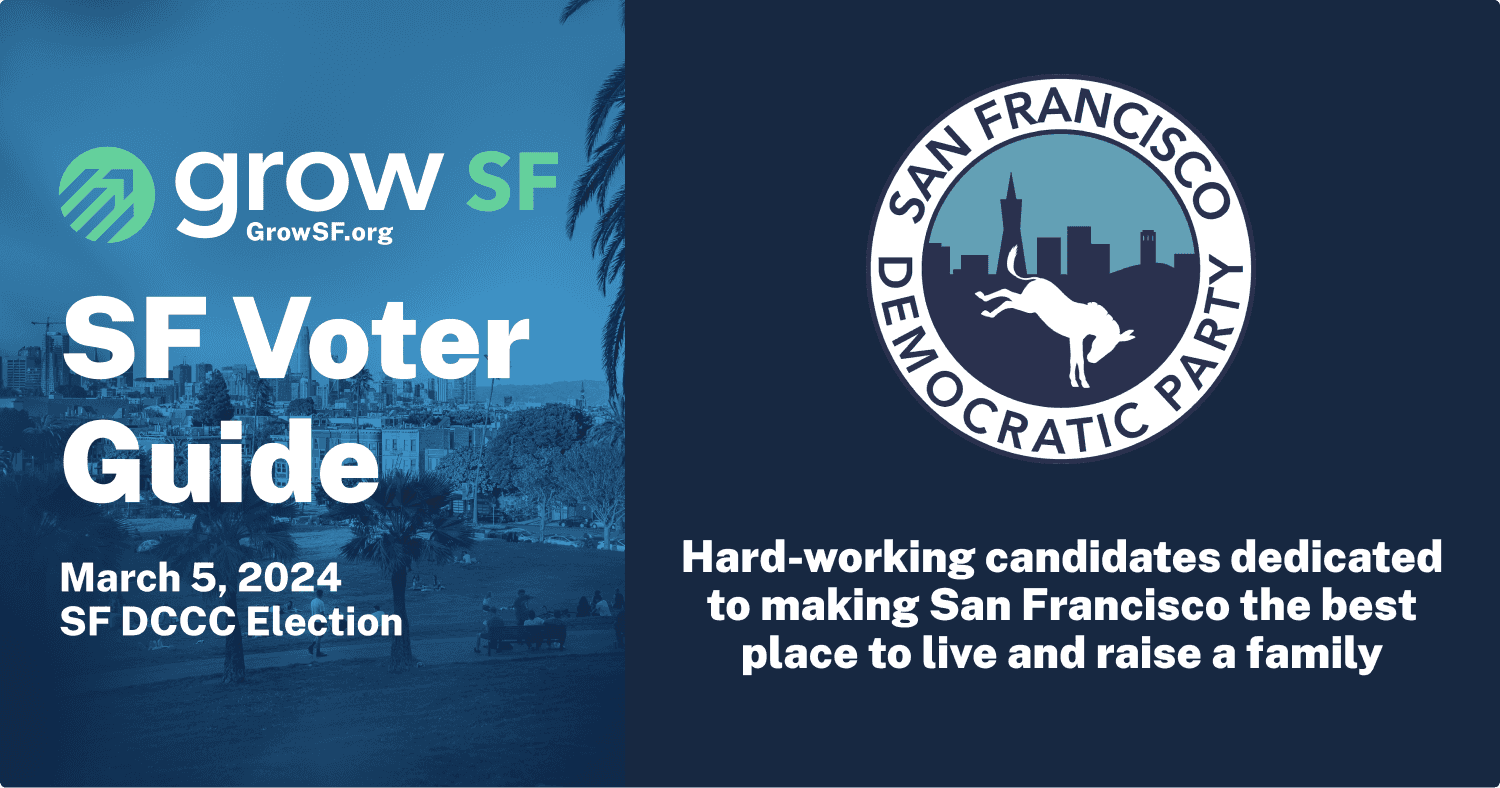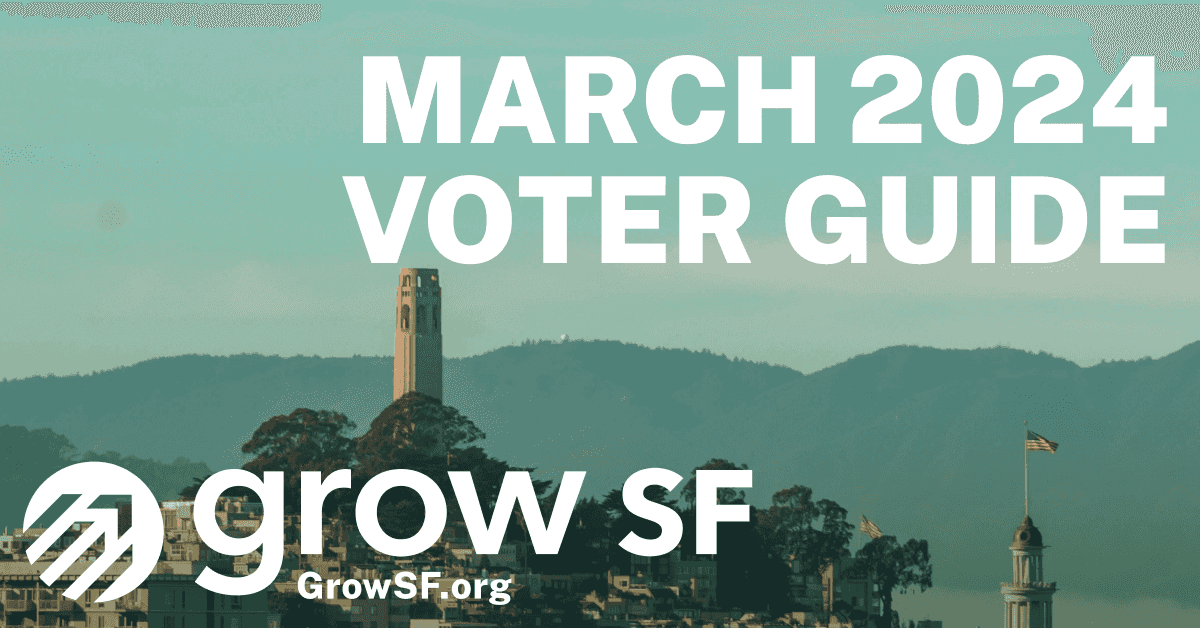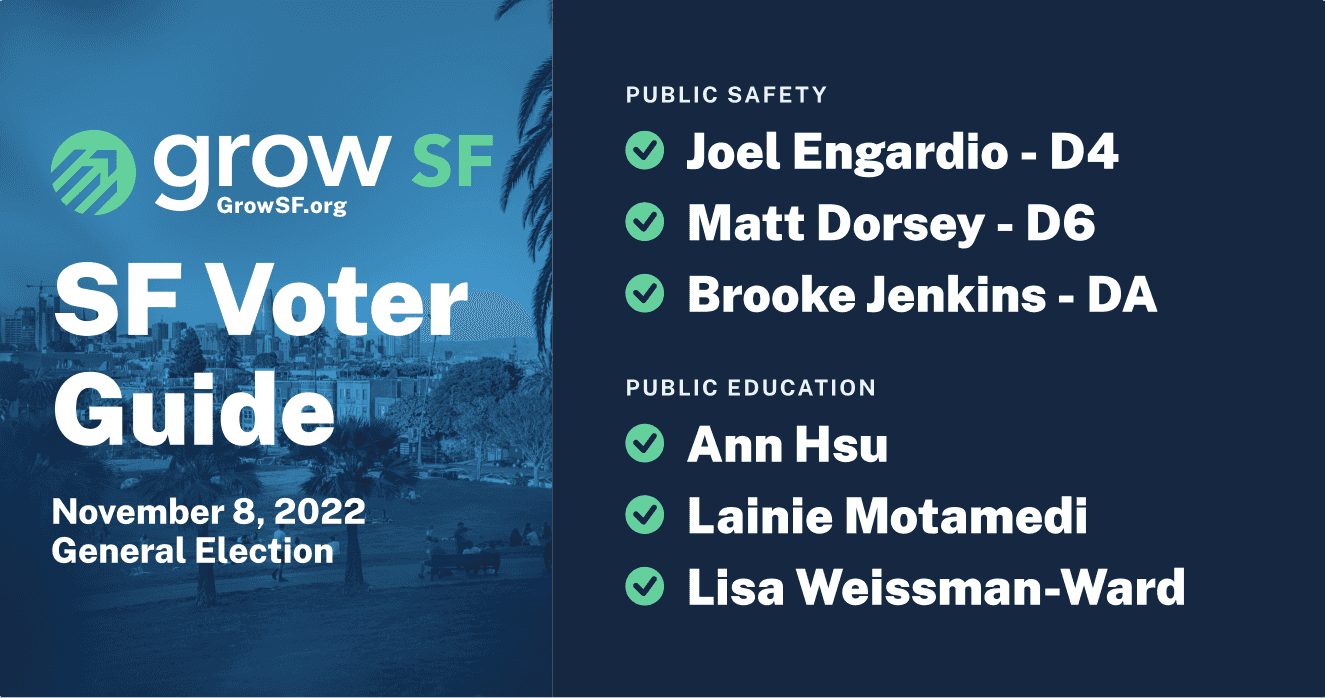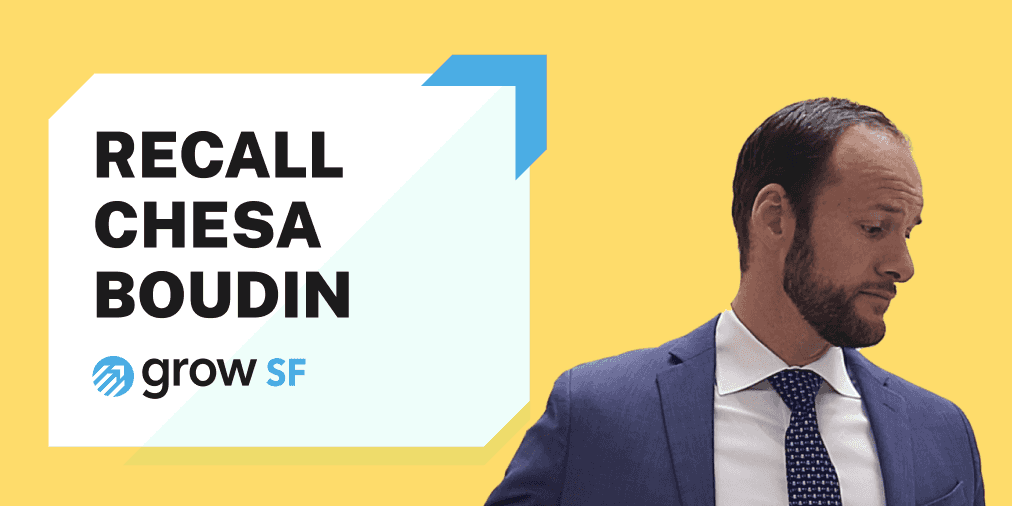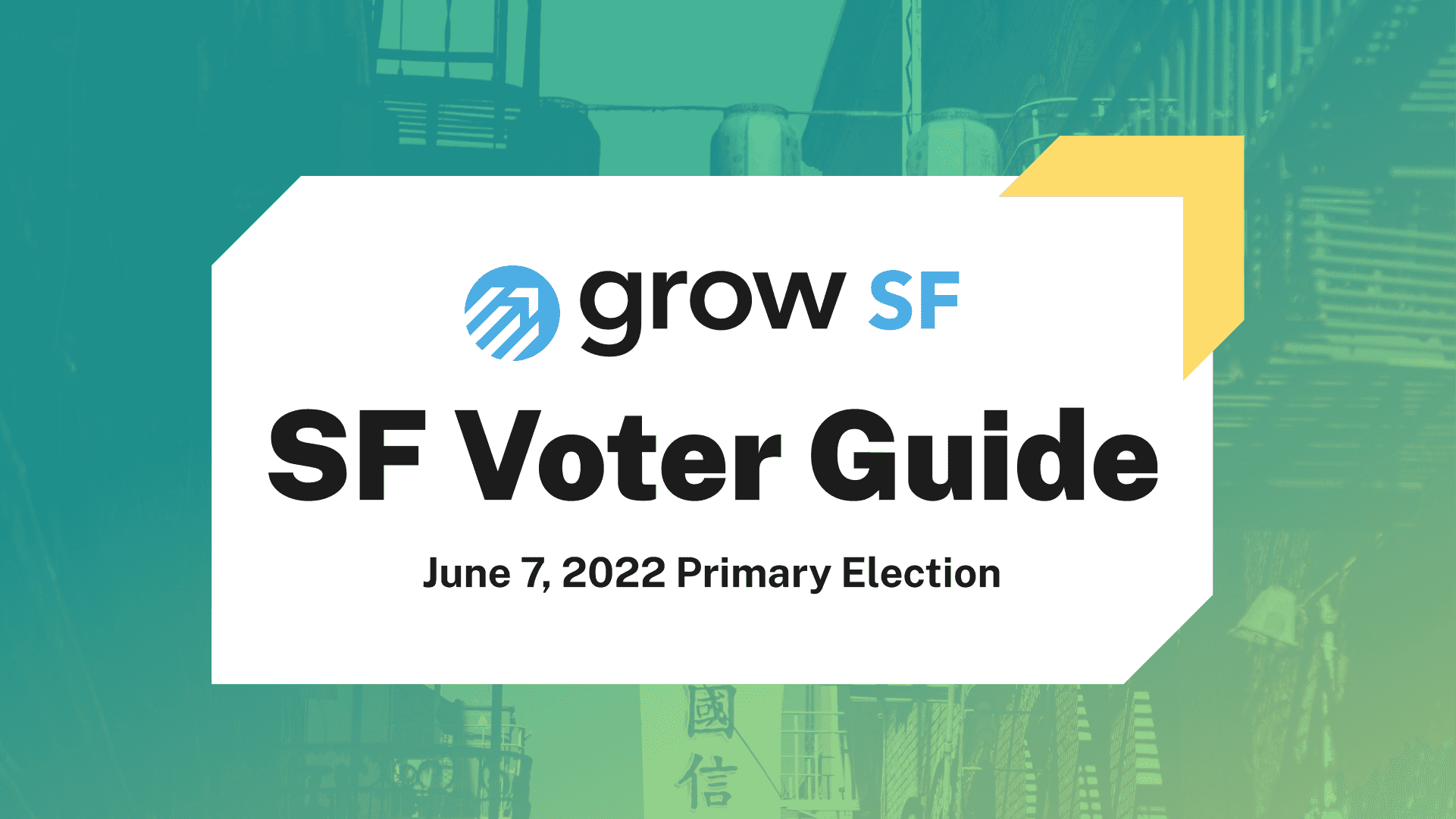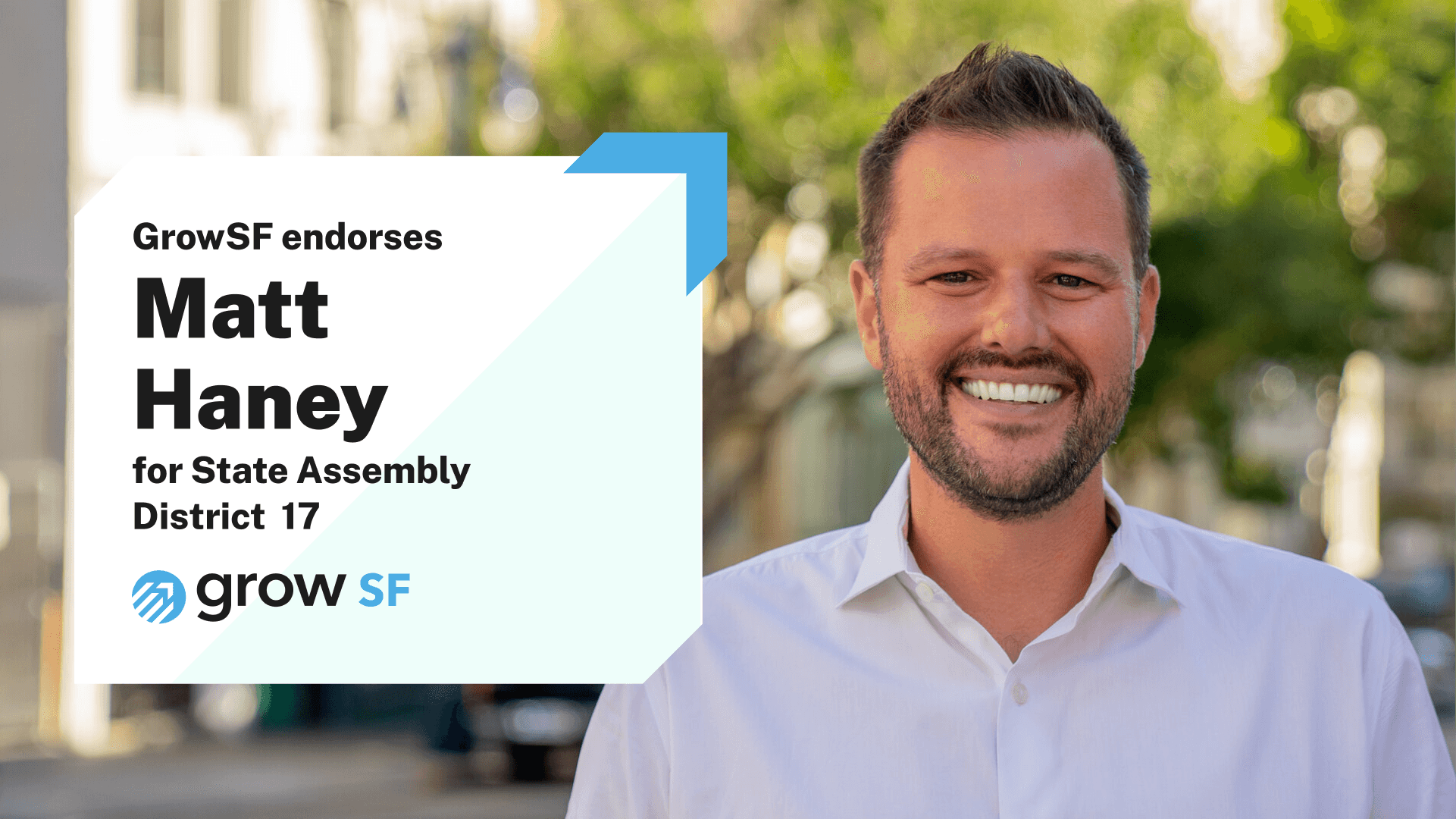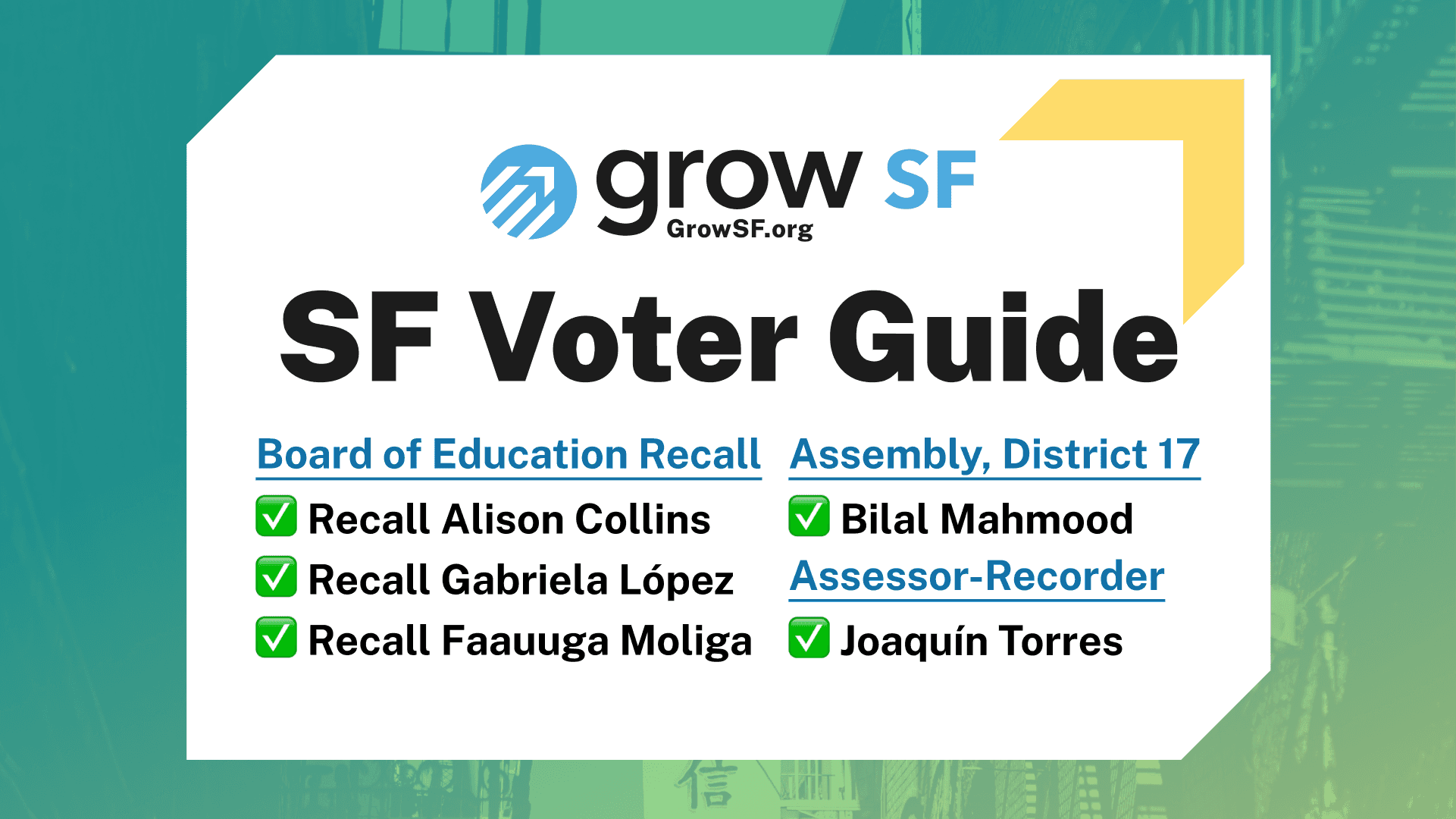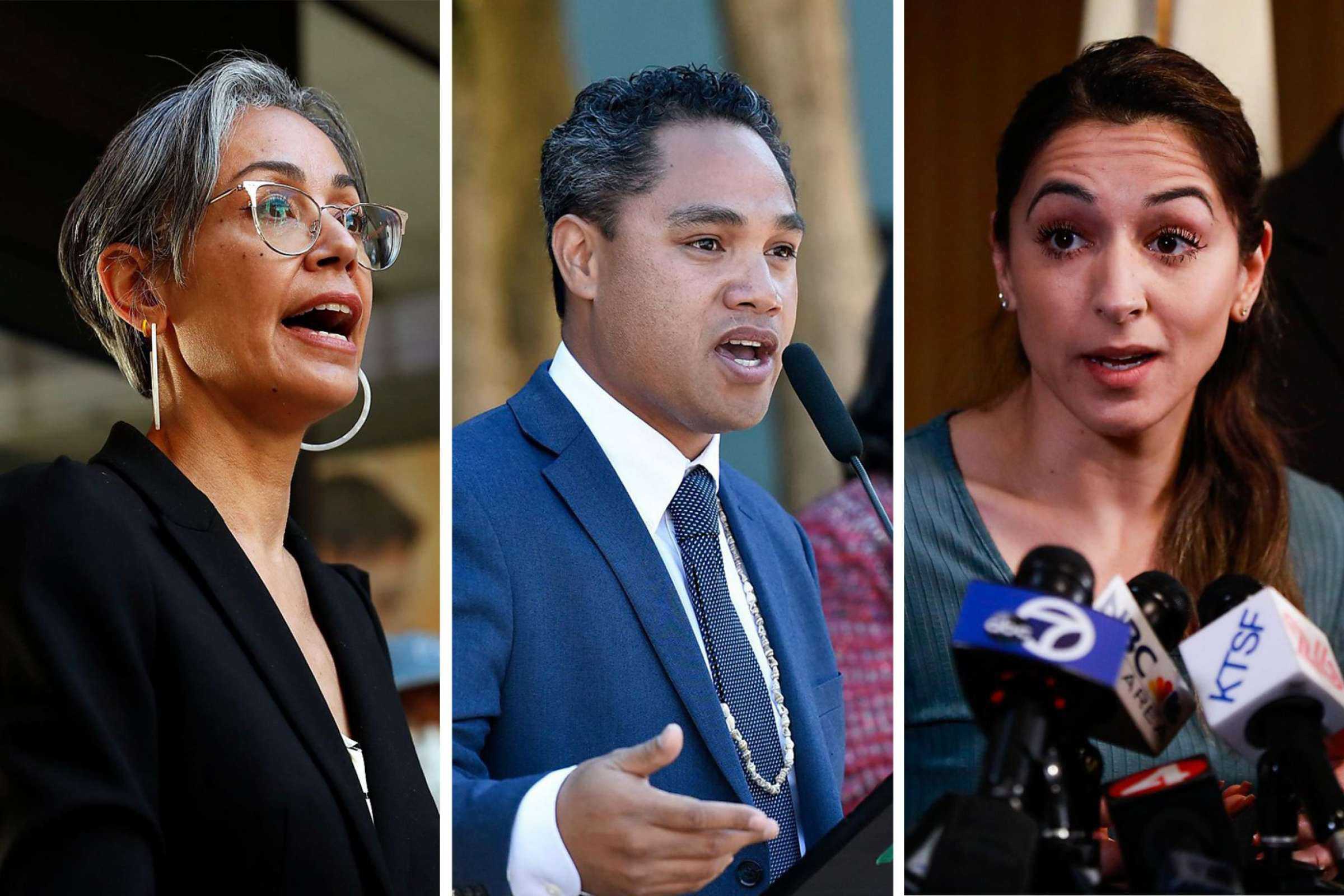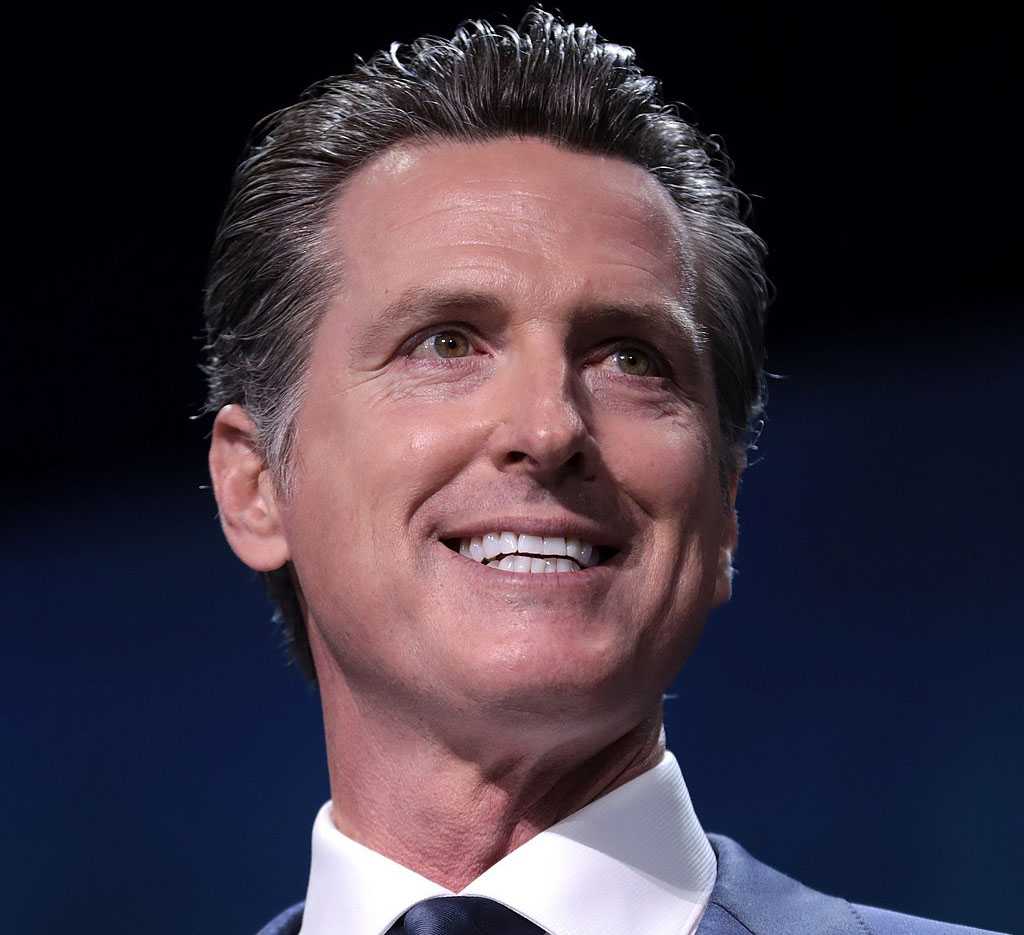Where the candidates stand on fentanyl policy
Last Updated: July 26, 2024

Voters tell us that one of their top issues in the November 5, 2024 election is the fentanyl crisis in San Francisco. To help you make an informed decision, we've researched the candidates' positions on fentanyl policy.
All answers were drawn from the GrowSF candidate questionnaire, which was sent to all candidates on the ballot. For the candidates who did not respond, we researched their public statements and voting records.
District 1
Marjan Philhour
Marjan believes we should arrest and prosecute fentanyl dealers and not prioritize diversion, while advocating for solutions that mandate drug treatment for people abusing drugs on our streets. Marjan advocates for developing a new strategy for treating drug abuse, arguing that safe consumption sites are ineffective without a zero-tolerance policy for public drug use. Given the sheer number of deaths fentanyl has caused on our streets, she believes in stricter penalties for fentanyl dealers. Marjan is also the only candidate in District 1 endorsed by the San Francisco Police Officers Association.
Jeremiah Boehner
Jeremiah embraces a self-described "zero tolerance" policy when it comes to how the city should deal with fentanyl dealers and users. He is strongly in favor of arresting and prosecuting fentanyl dealers, and arresting users to give them the "three choice option:" treatment, jail, or a bus ticket home. In the GrowSF candidate questionnaire, Jeremiah cites his experience with formerly addicted friends, who he says decided to turn their lives around while in jail -- which he contrasts with the city's safe consumption sites, stating that they do not work and end up perpetuating the issue. In Jeremiah's own words, we need to move from "a culture of enablement to a culture of personal accountability."
Sherman D'Silva
Sherman did not return our candidate questionnaire or phone calls. His website does not mention a position on fentanyl.
Jen Nossokoff
Jen wants to prioritize diversion instead of incarceration for street-level fentanyl dealers, and proposes that the city should "offer immediate support through outreach teams" to people abusing drugs on City sidewalks. The reality is, that is exactly what we have -- and to date, over 800 people a year die from current policy. Jen also supports the creation of safe consumption sites, arguing that they reduce overdose deaths and connect people addicted to drugs with treatment services. While she supports safe consumption sites, she does believe that they should be paired with a zero-tolerance policy of public drug use, to help achieve her stated goal of improving community safety without increasing overall crime rates.
Connie Chan
Connie did not return our candidate questionnaire, however her track record tells us enough about her position on fentanyl. Connie is strongly allied with the progressive coalition in the San Francisco government and has voted to defund the police, in favor of the Prop B "Cop Tax" proposition that 73% of her district opposed, and has not been an advocate for stronger measures against fentanyl dealing and use in San Francisco. Under Connie's tenure, open-air drug markets have continued unaddressed in San Francisco. Supervisor Chan is the incumbent in district one and currently up for reelection this November.
District 3
Danny Sauter
Danny supports arresting and prosecuting fentanyl dealers, though he prefers diversion programs for those arrested for dealing fentanyl. Danny declares strong support for evidence-based policy and is open to supervised consumption sites in the event that there is clear evidence they are efficacious. He proposes a response to addressing the fentanyl crisis that begins with resources and connections to service, and mandates treatment if there is harm posed to the person using drugs, or to the community. He is in favor of harsher penalties for those who deal fentanyl. While Danny may lean towards approaches to addressing the fentanyl crisis that are not as penalizing, he demonstrates a commitment to public safety and evidence-based interventions.
Moe Jamil
Moe supports arresting and prosecuting fentanyl dealers, and supports conservatorship programs to help people addicted to fentanyl reintegrate into society following treatment. Moe believes that the penalties for drug dealing should be proportional to the level of harm that the drug has inflicted on the community, and says that he will work with law enforcement to track down the sources of fentanyl entering our city. Moe would be open to an "equitable distribution" of safe consumption sites throughout the city if state and federal law were to change to allow them.
Sharon Lai
Sharon is in favor of safe consumption sites and does not have a considered take on how to address the fentanyl crisis in San Francisco. Though she supports arresting fentanyl dealers, she prefers a diversion approach. Sharon also supports privately-funded supervised consumption sites where those addicted to drugs can receive clean needles and medical oversight. While supervised consumption sites have fewer drug-related overdose deaths than public drug use, they do not mandate treatment and instead provide a city-managed area to use drugs.
Matthew Susk
Matthew is strongly oriented towards mandating treatment for fentanyl users. He proposes that we do so through initiatives such as safe medical detox facilities, homeward bound, and specialized drug treatment programs. Matthew opposes safe consumption sites as a solution to addressing fentanyl, and demands greater accountability from the organizations that the city contracts with to address the drug crisis. He objects to prioritizing diversion instead of incarceration for street-level fentanyl dealers and is strongly in favor of investigating, arresting, and prosecuting fentanyl distribution ringleaders.
Wendy Ha Chau
Wendy did not respond to our candidate questionnaire or emails, however an earlier version of her website which has now been taken down proposes that we create intermediate care facilities (24-hour-per-day residential programs) for treating people struggling with drug addiction. Wendy attributes the current drug crisis in San Francisco to failed leadership on the Board of Supervisors, and she proposes that all government employees wear body cams and livestream their work, which she defends because "We need 100% transparency from every aspect of the government."
Eduard Navarro
Eduard did not return our candidate questionnaire. He does not have a public statement about his position on fentanyl.
District 5
Dean Preston
This year, Supervisor Preston's Tenderloin neighborhood has had the most overdose deaths from fentanyl of any neighborhood in San Francisco. In 2023, San Francisco had 810 deaths from fentanyl, and 20% to 25% of those deaths each month were in the Tenderloin neighborhood. Dean has done so little to address the fentanyl crisis that we wonder whether his policy failures are due to a lack of looking at the facts or some misguided ideological commitments.
If it is from a lack of looking at the facts, the facts are clear. In the last six months alone, 77 people died in a couple square blocks of the Tenderloin from fentanyl overdoses.
If it is from misguided ideological commitments, all Supervisor Preston needs to do is talk to his constituents. The majority of San Francisco voters support arresting fentanyl dealers, fully staffing the police department, and believe that more neighborhood police prevents crime, a reality that Supervisor Preston does not acknowledge.
The reality is, Dean's policy failures have led to countless deaths, and that cannot go unnoticed. To top off his leadership track record of open air drug markets and serial shoplifting, Dean still calls for defunding the police. He has proudly championed "alternatives to policing" in his district, which have done little to address how unsafe it is for a kid to walk to school in the Tenderloin, or for a small business owner to open a successful storefront when they have to clear their front door of used needles.
Bilal Mahmood
To address the fentanyl crisis, Bilal proposes a Drug Market Intervention (DMI) strategy that has been carried out by the Department of Justice in several cities and now stands as a template for how to address other chronic open-air drug markets. The strategy works in three stages:
Law enforcement, community members, and social service providers form a partnership to carry out a DMI on a specific drug market.
Law enforcement arrests violent dealers, and notifies nonviolent dealers to attend a "call-in," a face-to-face meeting with law enforcement officers, social service providers, and community members where they are issued an ultimatum. Either they continue dealing drugs and go to jail, or they stop and are given a second chance.
Social service providers provide help to dealers and users willing to accept it.
Elements of this intervention have been tried in San Francisco, but this form of structured intervention has not been attempted. Bilal attributes the challenges to addressing the fentanyl epidemic to chronic understaffing in the city's departments, and calls for other districts to become more involved in the drug crisis. He demands that District 5 no longer be the "containment zone" for drug abuse. Bilal supports safe consumption sites in San Francisco.
Allen Jones
When asked about how he would address the drug crisis, Allen proposes care teams that would "work to gain the trust of drug users" first. And while he does not support safe consumption sites, he also disagrees with a zero-tolerance policy for public consumption of illegal drugs. Allen does not believe that fentanyl should be penalized differently from dealing other drugs, and describes his approach as "get to know them before considering treating them all the same."
Autumn Looijen
Autumn has coined her plan "Fenta-Nil" and has a three-fold approach:
Stop supply: arrest dealers and deport foreign offenders.
Stop demand: mandate medication-assisted recovery and stop public drug use.
Stop unsafe streets: Reinstate beat cops and clean the streets.
Autumn is open to diversion programs that are evidence-based for people who are first-time offenders. Like Bilal, she is also in favor of Drug Market Intervention (DMI) to confront local dealers. Autumn also proposes immediate access to medication-assisted treatment beds, rather than safe consumption sites in any form.
Scotty Jacobs
Scotty supports a zero-tolerance policy for the consumption of illegal drugs in San Francisco. While he supports safe consumption sites, Scotty believes they are not the solution and must serve instead as an "entry point" into recovery, and proposes that we arrest those who refuse to go to safe consumption sites and also use 5150 holds for people who overdose and are revived by city-administered Narcan. Scotty is also strongly in favor of more accountability around nonprofit contracting and how the city interfaces with drug crisis partners. He says that it will be a priority for him to audit non-profits operating safe consumption sites, and also to ensure that there are clear, trackable criteria for evaluating whether drug-treatment organizations are assisting people on the road to recovery.
District 7
Matthew Boschetto
Matt proposes that we rethink how to apply arrests, supportive housing, drug courts, and expungement programs to get people into treatment and off of the street. He acknowledges that a system based on voluntary treatment has failed in the case of fentanyl and is strongly in favor of policies that mandate treatment, such as 5150 holds (involuntary hospitalization) for those who have been administered Narcan by city services. Matt objects to responsibility-free compensation in the form of monthly stipends for people addicted to drugs, and calls instead for evidence-based approaches to treating addiction that keep the end goal of recovery. Because of this, he is open to the idea of safe consumption sites if they can successfully move people into treatment. Matt calls for stronger penalties for drug dealers who deal fentanyl.
Myrna Melgar
In her re-election candidate questionnaire that she delivered to GrowSF, Myrna states that she supports defunding the police, and proposes an alternative to mandatory drug treatment in the form of voluntary safe consumption sites, with a city-provided treatment option should a person addicted to drugs "be ready." Moreover, Myrna objects to penalizing fentanyl dealers differently, and believes that they should be penalized in the same fashion as any other dealer. While we believe that alternatives to policing are reasonable if there is clear evidence to demonstrate that they are effective, San Francisco's approaches have not proven this. The safe consumption sites that San Francisco has supported have not been successful, and with over 800 people dying annually from fentanyl, policies must change.
Stephen Martin-Pinto
Stephen states that the #1 public safety issue today is open air drug markets, and calls for a zero-tolerance solution for fentanyl. He calls drug use on sidewalks a health and environmental hazard, advocating for diversions into abstinence-based and medication-assisted treatment programs. While Stephen is open to the possibility of a safe consumption site paired with a zero tolerance policy, he acknowledges that given the track record of the San Francisco government, such initiatives are destined to fail. He supports harsher penalties for people who deal fentanyl.
Edward Yee
Edward did not return our candidate questionnaire or emails, nor has he gone on public record with a position about how he will address the fentanyl crisis in San Francisco.
District 9
Trevor L. Chandler
Trevor calls for a treatment-first approach to addressing public drug use, demanding greater confiscation and enforcement. As an alternative to our current approach, he proposes a tiered enforcement system that includes sobering centers, mandated treatment, and the arrest or conservatorship of repeat drug offenders. Trevor's plan is recovery-focused with an emphasis on considering every possible solution to the current crisis. Should safe consumption sites have worthwhile evidence supporting their implementation, Trevor is open to the idea but does not want to create city-funded settings for prolonged drug use.
Jackie Fielder
One idea explains Jackie's position on how to solve the fentanyl epidemic: people who use fentanyl will choose treatment if there were fewer barriers to getting it. However, in San Francisco, there are no barriers to getting treatment. The city must provide treatment -- it is inscribed in law, and has been since the passage of Prop T in 2008, the Treatment on Demand Act. You can, and by law must always be able to, walk into a clinic and receive drug treatment. San Francisco provides at no cost: residential treatment and residential step down (a temporary drug and alcohol free environment), outpatient treatment, medication treatment, and withdrawal management.
In the last two years, San Francisco has added residential step-down, withdrawal management, and dual diagnosis beds; increased access to medication treatment through expanded program hours and home delivery; expanded contingency management; continued growth of the Office of Coordinated Care; and further increased overdose prevention and response efforts.
So when we read Jackie's plan to address overdoses by providing treatment-on-demand, creating "wellness hubs," and "eliminating barriers to treatment and overdose prevention measures," we have to ask: if you believe these solutions will actually move the needle, what do you think of San Francisco's current initiatives?
Because Jackie calls for duplicating many of the efforts already underway in our city, we believe that Jackie's approach to fentanyl is unfounded and needs provisions that are actually backed up by evidence about what has and what hasn't worked in addressing the drug overdose crisis.
The "wellness hubs" Jackie proposes creating are already part of San Francisco's 2022 Overdose Prevention Plan. Jackie also supports defunding the police, which we believe makes strides in the wrong direction for addressing the fentanyl epidemic on our streets.
Roberto Y. Hernandez
Roberto calls for more, in his words, "service on demand" -- which he describes as "putting [people addicted to drugs] in treatment programs." But as we've noted, it is inscribed in San Francisco law that anyone who wants to get drug treatment will get free drug treatment under 2008's Prop T. Based on public comments, Roberto seems to imply that he supports mandating treatment, but does not explicitly say so. By trying to walk the line between championing a brand of cautious moderation on the one hand, and a staunch objection to the way things are, on the other, Roberto comes across as indecisive about how he would address the fentanyl epidemic.
Julian E. Bermudez
Julian does not support arresting and prosecuting street-level fentanyl dealers, advocating instead for only arresting and prosecuting fentanyl distribution ringleaders. Julian is in favor of safe injection sites, but argues that the San Francisco approach to safe injection sites is currently ineffective, dubbing them "needle shops." Moreover, when asked about whether fentanyl should be penalized differently from dealing with other drugs, he describes confiscation of drugs as "punishment enough." And that in the case of mental health holds, the city needs to bring the person to court and judge them in front of a jury of local medical professionals. His plan does not elaborate on provisions for addressing fentanyl use.
Harold Brown
Harold supports decriminalizing all drugs to take "cops and dealers out of the equation." He cites examples of decriminalizing drugs seen in Portugal, Spain, and Oregon as success stories, and proposes that we allow prescriptions for all drugs thereby creating an environment for state regulation -- this would mean allowing prescriptions for fentanyl, for instance. However, it is not true that both of these countries have completely decriminalized drugs -- both Portugal and Spain in fact have zero tolerance policies for street use and dealing, and drug users are pushed into treatment. Harold is also in favor of safe consumption sites and objects to the Mayor's closure of them.
Jaime Gutierrez
Jaime stands for a zero-tolerance policy on open air drug use and believes that safe consumption sites do not compel people using drugs into treatment. Rather, Jaime prefers a treatment-first approach that gets people off of the streets and into settings where they can address their addiction. He also objects to penalizing fentanyl dealers differently than other dealers due to a concern with fine tuning the law, and prefers having one unified standard that is applied equally to all. Jamie proposes detox centers as an alternative to safe consumption sites.
Stephen Torres
Stephen did not answer our candidate questionnaire or emails, nor does have a public comment on how he would address the fentanyl epidemic.
District 11
Michael Lai
Michael supports arresting and prosecuting fentanyl dealers in addition to going after organized crime. He is in favor of coordinated efforts across state and federal agencies to shut down open air drug markets, and advocates for an organized initiative to disrupt the entire drug supply chain. While Michael supports supervised consumption sites, he only does if they prove to be effective. Michael's views are strongly guided by a focus on evidence-based policy and he emphasizes that he needs to further review what has and hasn't worked before adopting a stronger opinion on which policies actually address the fentanyl crisis.
Ernest Jones
Ernest calls for focusing on a treatment-first approach with abstinence based outcomes. He objects to safe consumption sites on the grounds that they are not a solution to the problem, and if anything, actually provide a city-funded environment for perpetuating drug use. Ernest also advocates for zero-tolerance of public drug use, and prosecuting dealers who have led to the deaths of people. His positions are similarly strong when it comes to how the City can better help people facing mental health crises.
Adlah Chisti
Adlah states that first responders need additional training with how to handle people with mental health conditions and/or use drugs. But the reality is, San Francisco already has one of the most advanced first responder portfolios in the U.S. When someone is having a mental health episode they are met by either the Street Crisis Response Team or the Street Overdose Response Team. Both of which are made up of a variety of clinicians, emergency medical professionals, and case workers. San Francisco leads the standard for response here, so if they still need additional training, we have to ask -- where?
Adlah proposes that we implement safe consumption sites because they provide a carrot before a stick. She states that one of the best ways to achieve harm reduction is by collecting those who use illegal drugs and directing them to safe consumption sites. However this approach, practically speaking, is what San Francisco has done before and with little success. While we commend Adlah's calls for community involvement and advancing policy positions that reflect the views of her district, we believe her policy proposals need more substantive evidence to meaningfully address our drug crisis.
Roger Marenco
Roger did not return our candidate questionnaire, but his public comments suggest that he is against public drug use and would likely be in favor of harsher penalties against those dealing fentanyl and using it on the street.
Chyanne Chen
Chyanne did not respond to our candidate questionnaire or emails, nor does she have a public position on addressing the fentanyl crisis.
Oscar Flores
Oscar did not respond to our candidate questionnaire or emails, nor does he have a public position on addressing the drug crisis.
Jose Morales
Jose advocates for a zero-tolerance policy and higher penalties for those who deal drugs. Jose is in favor of arresting both street-level dealers and distribution ring leaders, but also wants to arrest and prosecute street food vendors operating without a permit. His philosophy for addressing both the mental health and drug crises could be described as strongly interventionist, with an emphasis on zero-tolerance policies that prioritize treatment first solutions.
Past GrowSF Voter Guides

